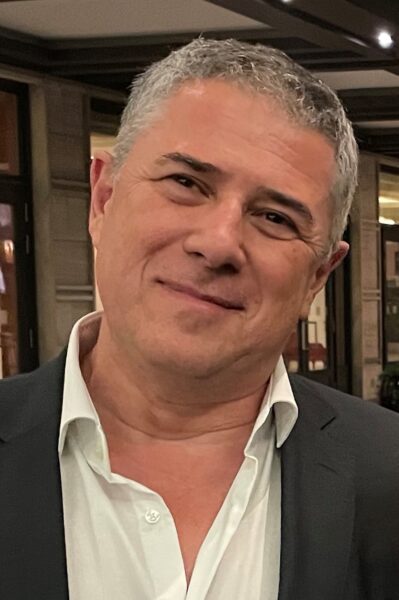Daniel Neuville

Daniel R. Neuville is a senior research director at CNRS-IPGP, Université de Paris. He obtained his PhD in geochemistry from Université Paris Diderot in 1992 and conducted postdoctoral research at the Geophysical Laboratory, Carnegie Institution of Washington (1993–1994). He joined CNRS as a researcher in 1994 and has led the Geomat group at IPGP since 2014. From 2012 to 2025, he chaired the Master’s program in Geochemistry, Geomaterials, Geobiology, and Environment at IPGP-Université Paris Cité.
His research pioneers the use multiple spectroscopies to develop structural models for glasses and melts, bridging geomaterials, physics, and chemistry. He has significantly advanced the understanding of macroscopic properties in relation to atomic-scale structure and dynamics.
Daniel has received the Jean Rose Prize from AFAS (1999), the Joubin-James Visiting Professorship at the University of Toronto (2007–2008), the Fellowship of the Mineralogical Society of America (2018), and the Otto Schott Research Award (2022).
He has served as Guest Editor for Elements (2010, 2019), Review in Mineralogy and Geochemistry “Spectroscopic methods in Mineralogy and Material Sciences” (2014) and “Geological Melts” (2022), AGU Monograph on Magma Redox Geochemistry (2021), and Comptes Rendus Geoscience (2022) and Physique (2023).
He was the elected chair of the commission of Physics of Minerals of the International Mineralogical Association (2014–2022). Since 2011, he has chaired the French Glass Network (USTV) and is currently president of the European Society of Glass Science and Technology. He was the chair TC03 Committee on the structure and properties of glass of the International Commission on Glass, ICG, and in 2025 he was elected CTC of ICG.
Abstract
Title: The Properties of Glass and Melt
Daniel R. Neuville,
Geomat Lab, CNRS-IPGP, Université de Paris, 1 rue Jussieu, 75005 Paris
Between 1938 and 2025, our understanding of glass has evolved dramatically. Once thought to be limited to silicate-based systems, we now know that glass can be formed with nearly every element in the periodic table and across all types of chemical bonds. Today, glass is best defined as a state of matter characterized by structural disorder and the glass transition phenomenon.
Yet, fundamental questions remain: What exactly governs the glass transition? How do different chemical elements influence the properties of both glass and melts? And most importantly, how can we bridge the gap between atomic-scale structure and macroscopic behavior?
In my talk, I will explore the structural roles of chemical elements—as network formers, charge compensators, or network modifiers—and their direct impact on material properties like viscosity. Beyond that, I will examine how these roles influence nucleation mechanisms and redox reactions. Understanding these processes is not just a matter of academic curiosity; it has real-world implications, from deciphering mass transfer in magmatic chambers to engineering low-carbon glass compositions that are essential for the energy transition.